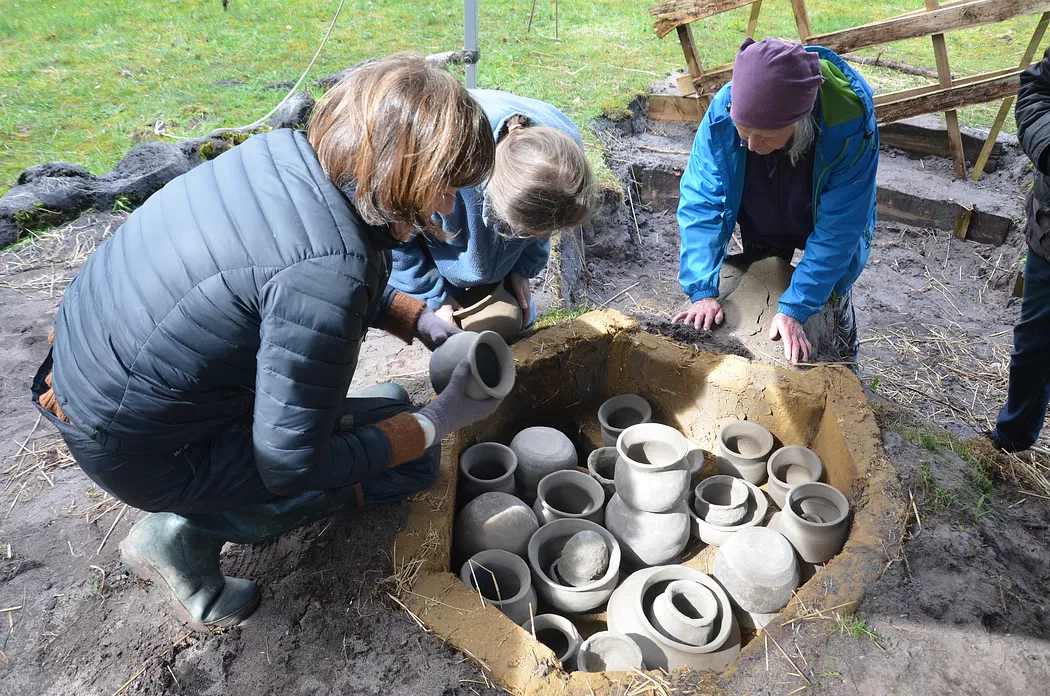
“Ipswich ware” jars and pots, first made 1,400 years ago in the English town, are being fired again in a replica Anglo-Saxon kiln thanks to funding from The National Lottery Heritage Fund.
This new experimental archaeology project is being led by Suffolk County Council Archaeological Service, to investigate how Anglo-Saxon pottery was once made in Ipswich. The new kiln has been built and fired by studying archaeological remains excavated from the Buttermarket in Ipswich, something never attempted before. Only two kilns have ever been excavated in Ipswich, the other was discovered at Stoke Quay.
Ipswich ware pottery was made in the town from c. AD 680-870. Jars, cooking pots and pitchers were the most commonly-made items, simple in design and grey in colour. They were mass-produced and distributed throughout eastern England, and were some of the first of their kind in post-Roman Britain.
Read the rest of this article...
No comments:
Post a Comment